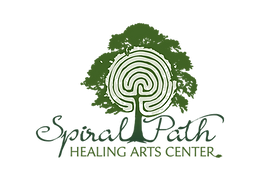Why Is It So Hard to Ask for Help?
This past spring, a dear friend invited me to visit her in Sanibel Island, Florida. Such a lovely gift of kindness at a point when so much was going on in my personal life. I struggled with accepting her offer at first. All kinds of thoughts popped into my head. Things like “My visit would be an imposition”, “How could I ever repay such kindness?” — the list goes on.
As I hold curiosity regarding what parts of me block receiving support from others, I remember the words of Richard Schwartz, Ph.D., founder of Internal Family Systems Therapy. He stated that one of the collective burdens of the United States is the belief in “Rugged Individualism”. This concept includes ideas about extreme forms of self-reliance and independence. This message is pervasive and often not in our awareness. We internalize beliefs such as “I have to do it all on my own”, “There is shame in asking for help”, “Put on that happy face and suppress everything else down deep inside”. We are told to pull ourselves up by the bootstraps. Seeking support is seen as a weakness, not an innate intrinsic human need.
Clinical evidence points to the negative long-term impact we experience when there is a lack of support during difficult times. This is felt in our bodies, emotions, thoughts, behaviors, in our relationships with others, and with our Spirit.
As I reflect on my visit with my friend in Florida, an event occurred that has me challenging my relationship with the beliefs of rugged individualism. While visiting J.N. Darling National Wildlife Refuge, I remember I had a moment of sheer shock when my prescription sunglasses fell into the swamp as I was observing a tricolored herring and a large alligator along an observation platform. Then, adding insult to injury, my iPhone went diving into the water and mud as well. Nowhere to be seen.
I was stunned. At that moment, an incredible volunteer of the refuge, Joyce, stepped in to help me. People passing by provided encouragement as they witnessed my “meltdown”. Such kindness. I have such gratitude for all those who were there for me. With their connection, I was able to calm my body, mind, heart, and soul.
This event in my life has led me to believe that an important component of self-compassion is allowing our hearts to be open to support from others. This may be a radical concept in our society, but I consider this to be a powerful spiritual practice.
As we become more open to accepting support from others, we are able to be more present for others when they need support. The gift keeps going.
